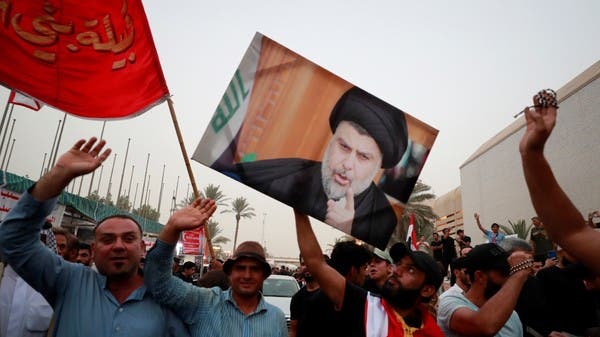The leader of the Sadrist movement in Iraq, Muqtada al-Sadr, stepped up his rhetoric once more, highlighting that he did not see a response from political parties in the country, which has been in crisis for more than ten months, to have an open discussion under the auspices of the United Nations.
The influential Shiite cleric, who won the most seats in the most recent parliamentary elections but repeatedly failed to form a government or elect a new president due to political rivalries, claimed that he had not received a response to a request for a public dialogue that he made to the UN mission.
In a tweet sent to his Twitter account today, Saturday, he also advised all Iraqis to wait for the next steps, rejecting his current pleas for a joint public discussion among all political parties in Iraq.
Additionally, he said that he would not associate with corrupt individuals or those who were out to get him, a reference to those involved in the coordinating framework, including Nouri al-Maliki, the archenemy of Sadr.
The Sadrist movement and the framework, between which tensions have increased over the choice of a new prime minister, may have been the subject of his further declaration that he would never again engage in a covert dialogue after that session. Al-Sadr abstained from the meeting, which was called on Prime Minister Mustafa Al-invitation Kazemi’s last Wednesday.
The Sadrist leader continued, “We issued a proposal to the United Nations for a public conversation session with the major parties, but no one responded.” He concluded by highlighting the numerous concessions he had made in favour of the Iraqi people and civil peace.
Noting that political forces have been unable to agree on the election of a new president of the republic, the formation of a cabinet, and position stagnation for more than ten months, it is important to note that Iraq is currently experiencing a significant political crisis.
Al-Sadr and the coordination are more tense now than they were before the standoff and failure, especially since late July. Despite no violence or physical altercation to date, the two sides have traded verbal barbs and pressure on the streets.
Al-Sadr wants to dissolve the legislature and hold early elections for the legislature, while the framework—which consists of Nouri al-Maliki, the Fatah Alliance, and Iran-friendly forces—wants to form a government first.
Al-Sadr: I won’t argue with those who attempted to kill me, and I’ll wait for our next course of action.

